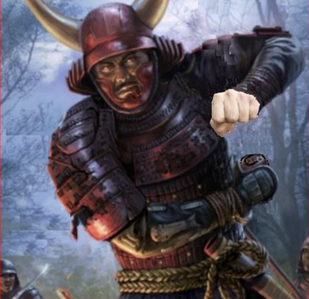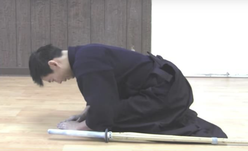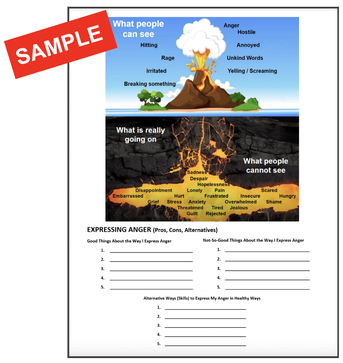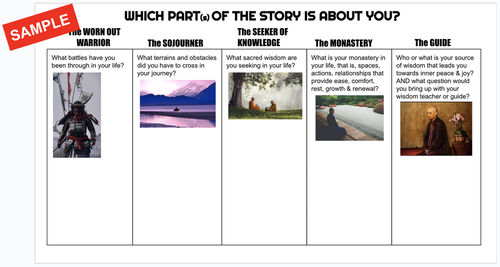INTRODUCTION
As a Religious Studies major in college, I first came across this story in Daisetz T. Suzuki's thick book "Zen and Japanese Culture" and was enthralled by the many wisdom stories about the samurai. The archetype of the warrior often goes hand in hand with a wise spiritual monk. One is a student and the other a guide. While the warrior represents external strength & resilience, such character often find themselves yearning for wisdom from a monk or a wise sage who embody inner peace. If you grew up in Asia like I have and watched kung fu movies, this is a ubiquitous cinematic genre.
As a Religious Studies major in college, I first came across this story in Daisetz T. Suzuki's thick book "Zen and Japanese Culture" and was enthralled by the many wisdom stories about the samurai. The archetype of the warrior often goes hand in hand with a wise spiritual monk. One is a student and the other a guide. While the warrior represents external strength & resilience, such character often find themselves yearning for wisdom from a monk or a wise sage who embody inner peace. If you grew up in Asia like I have and watched kung fu movies, this is a ubiquitous cinematic genre.
The wisdom story about the samurai and the monk taps into the human journey to find wisdom - specifically, the interaction between peace and violence. True to its form in Zen Buddhist tradition, the teacher in the story cuts to the chase and gets to the point of how our body and mind experience these opposites.
NOTE: In the story's original version, the interaction between the monk and samurai is more violent. As a storyteller, I encourage you to be mindful of your audience and your context, and adapt parts (especially trauma triggers) that might be too overwhelming for the listener to hear. Feel free to use the original version if you think it is appropriate for your audience. I have adapted this story for my particular context in Behavioral Health by not having the samurai use the sword to express anger, and not having the monk use demeaning words to explain the point of the monk's lesson.
NOTE: In the story's original version, the interaction between the monk and samurai is more violent. As a storyteller, I encourage you to be mindful of your audience and your context, and adapt parts (especially trauma triggers) that might be too overwhelming for the listener to hear. Feel free to use the original version if you think it is appropriate for your audience. I have adapted this story for my particular context in Behavioral Health by not having the samurai use the sword to express anger, and not having the monk use demeaning words to explain the point of the monk's lesson.

THE SAMURAI & THE MONK
(A Japanese Zen story)
Once there was a battle-worn warrior who was on his way home. He was tired and exhausted after having gone through many wars. On his horse he traveled for many miles over hills, across valleys, forests and rivers. Finally, the terrain started to look familiar and he knew he was almost home. Then he came across an old monastery. He got off his horse and decided to do a quick stop over for a rest and visit the monk.
Inside the monastery, the resident monk was seated peacefully in a meditation pose, taking slow deep breaths in silence. The warrior entered the monastery and walked towards the peaceful monk.
Finally, the warrior spoke: “My dear monk, I have travelled for miles and I am tired and worn. I have been through many battles. I have a question that I always wanted answered. It is a question that I have heard many times - uttered by those who have suffered. So please, holy monk, tell me about the difference between heaven and hell.”
The monk quietly replied, “I cannot tell you about heaven and hell because you are not ready.”
“What do you mean I am not ready?” the monk asked in an agitated tone.
“No, you are not ready. Come back at another time.” the monk suggested.
“I am exhausted after journeying through distant lands. I am almost home. And you tell me I am not ready. I
want you to tell me the answer to my question.”
The monk once again in a calm voice said: “As I have said, you are not ready. Come back and try again at another time.”
In a frustrated tone, the warrior said: “I want the answer to my question now. Please…”
“Go away. You are not ready.”
The warrior raised his fist in anger and was about to strike the monk: “How dare you! …”
Without flinching, the monk calmly said: “And that, my friend, is hell.”
(A Japanese Zen story)
Once there was a battle-worn warrior who was on his way home. He was tired and exhausted after having gone through many wars. On his horse he traveled for many miles over hills, across valleys, forests and rivers. Finally, the terrain started to look familiar and he knew he was almost home. Then he came across an old monastery. He got off his horse and decided to do a quick stop over for a rest and visit the monk.
Inside the monastery, the resident monk was seated peacefully in a meditation pose, taking slow deep breaths in silence. The warrior entered the monastery and walked towards the peaceful monk.
Finally, the warrior spoke: “My dear monk, I have travelled for miles and I am tired and worn. I have been through many battles. I have a question that I always wanted answered. It is a question that I have heard many times - uttered by those who have suffered. So please, holy monk, tell me about the difference between heaven and hell.”
The monk quietly replied, “I cannot tell you about heaven and hell because you are not ready.”
“What do you mean I am not ready?” the monk asked in an agitated tone.
“No, you are not ready. Come back at another time.” the monk suggested.
“I am exhausted after journeying through distant lands. I am almost home. And you tell me I am not ready. I
want you to tell me the answer to my question.”
The monk once again in a calm voice said: “As I have said, you are not ready. Come back and try again at another time.”
In a frustrated tone, the warrior said: “I want the answer to my question now. Please…”
“Go away. You are not ready.”
The warrior raised his fist in anger and was about to strike the monk: “How dare you! …”
Without flinching, the monk calmly said: “And that, my friend, is hell.”

Upon hearing this the warrior was confused for second, but then an insight broke open, and the warrior realized that in that very moment, the monk was answering his question. Deep peace came over the warrior for the insight he had gained through the monk’s teaching. And so in gratitude, he dropped his knees to the ground and bowed towards the monk in humility.
The monk then said, “And that, my friend, is heaven.”
The monk then said, “And that, my friend, is heaven.”
REFLECTION QUESTIONS
- What did you find to be the most important part of the story? What resonated with you?
- What experiences have you had that is close to this story?
- Where do you find yourself in this story? Which part of the story is about you?
Guide for Facilitators of Spiritual Care Support Groups
|
Practice Spirit Play storytelling:
|
|


